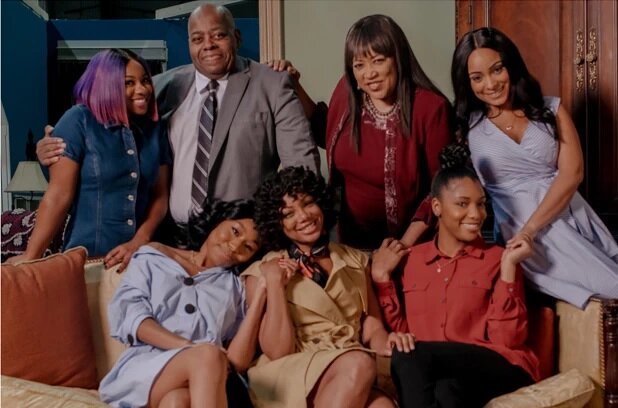Mylifetime.com
By Andrea Thompson
Watching “Pride & Prejudice: Atlanta” is a jarring experience at times, because listing the ways it doesn’t do justice to the source material almost seems beside the point. It’s not trying to do anything but be a Lifetime movie, only with less dire stakes than the genre is typically known for.
This only makes sense, given that “Pride & Prejudice: Atlanta” is a Lifetime movie. Lifetime hasn’t taken nearly as much grief since the Hallmark Channel made it look edgy, and “Pride” has them at their lightest. There are no abducted teenage girls, no abused wives, no horrific family secrets unearthed, only the fluffy stakes of the lightest of relationship dramas.
The movie let us know what we can expect right away, with Elizabeth ‘Lizzie’ Bennet (Tiffany Hines) rushing late into the church where her pastor father preaches in all her relatable career woman glory, with just the barest of bones of a plot, which involves protesting a planned strip mall in an effort to preserve the Atlanta Lizzie knows and loves. Needless to say, there’s a sense that her problems are going to be solved pretty easily.
Nypost.com
Whether that disappoints mostly depends on what you love about Jane Austen’s most cherished novel. “Pride” may sand down most of the story’s edges, but it’s one of the only adaptations I’ve seen that successfully modernizes the novel. Part of why that is is due to another reason the movie is so unique: it’s the only adaptation that features an all-Black cast. In their close-knit community, various social niceties feel like they have about as big an impact as they would in Austen’s time.
It’s one of the major obstacles to transporting pretty much any of Jane Austen’s plots to a modern setting. What seemed enjoyable then becomes frivolous in a time when women can leave the house by themselves, have sex before marriage, and earn their own money. It also doesn’t hurt that the gulf between the middle class and the wealthy seems about as extreme, with the kind of gorgeous palatial homes many of Austen’s characters would probably appreciate.
What’s missing from the “Pride” are flaws, ironically enough. A movie with no villains is generally a good thing, but the men, even Wickham (Phillip Mullings Jr.) reveal themselves to be basically good guys at heart. Even more ironic, it’s the women who aren’t done justice, with many around Lizzie almost seeming embarrassed by her intelligence and single status. The lessons many of them seem to learn involve being good wives, from Lizzie learning to see what a nice guy Darcy (Juan Antonio) really is to Lydia learning to behave better after Wickham gets her pregnant.
Pride & Prejudice: Atlanta
The real hero of the story is Mrs.Bennet (Jackée Harry, who’s having a ball), who is the author of a self-help book about finding a husband, which makes her rather embarrassed that all of her daughters remain single. She is also the movie’s narrator, and her marriage is founded on real love rather than misunderstanding and resignation. She’s the impetus for much of the plot, from snooping on social media to investigate a prospective suitor’s prospects, to encouraging Jane (Raney Branch) to take an Uber rather than drive so she’ll need a ride back. Her closing narration, which extols the virtues of love and commitment, is even enjoyable.
So while you won’t find a trace of Austen’s trademark wit and irony, but “Pride & Prejudice: Atlanta” might still be fun viewing if you’re looking for mostly harmless, relentlessly upbeat viewing.







